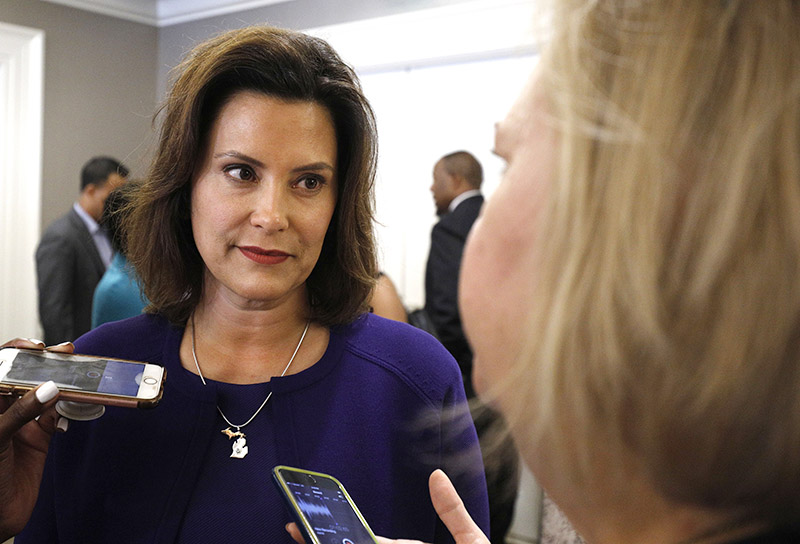
Michigan’s Democratic Governor Gretchen Whitmer has apparently caved to demands by outraged citizens to lift restrictions and reopen the state so they can return to work.
Whitmer angered voters when she locked down the state and banned travel between residences. Family members were not allowed to visit each other, and police were ordered to arrest violators.
Whitmer said on Good Morning America on Friday that she hoped to reopen the state by May 1. That is the date that President Donald Trump ordered all governors to reopen their states to avoid collapsing the economy.
“I do hope to have some relaxing come May 1st, but it’s two weeks away, and the information, the data and our ability to test is changing so rapidly. It’s hard to tell you precisely where we’ll be one week from now, let alone two weeks from now,” she said.
Whitmer changed her stance and plans to relax her draconian rules after thousands of residents took to the streets in protest this week.
Additionally, four sheriffs said they would not enforce Whitmer’s stay-at-home policy because she was “overstepping” her executive authority.
“Each of us took an oath to uphold and defend the Michigan Constitution, as well as the US Constitution, and to ensure that your God-given rights are not violated,” the sheriffs said in a joint statement. “We believe that we are the last line of defense in protecting your civil liberties… As sheriffs of this community, we want you to know we have your back and will continue to serve the people who entrusted us with your protection.”
Protesters in Virginia, North Carolina and Minnesota disrupted traffic and marched in the streets. President Trump showed support for the demonstrators on Twitter.com.
Minnesota’s Democratic Governor Tim Walz also caved to protests in his state. Residents are allowed to go fishing, boating, hunting and hiking as long as they maintain a safe distance.
COVID-19 causes mild symptoms or no symptoms in most healthy adults. The virus causes acute respiratory syndrome (SARS) and potentially fatal pneumonia among the elderly, particularly those with chronic illnesses such as respiratory and heart problems, HIV/AIDS, obesity, and smokers.





